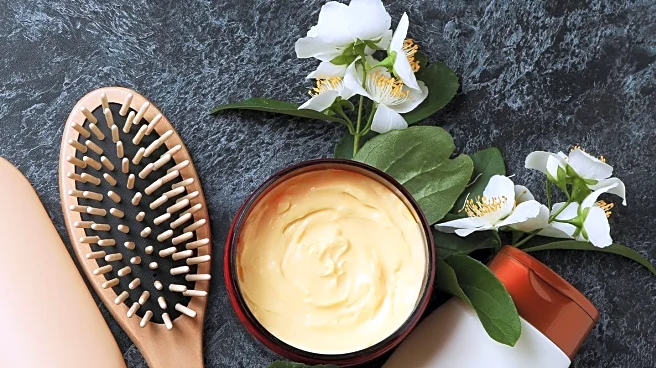What's Happening?
Men's grooming experts emphasize the importance of using conditioner regularly to maintain healthy hair. Shampoo cleanses the scalp and hair, removing dirt and oil, while conditioner replenishes moisture
and smooths the hair cuticle. Dermatologists and stylists suggest that most men should condition their hair after every wash to prevent dryness and breakage. However, the frequency can vary based on hair type and lifestyle. For instance, men with fine hair should limit conditioning to three times a week to avoid weighing down their hair, while those with curly or coarse hair may need more frequent conditioning. Additionally, individuals with color-treated or dry hair are advised to condition every time they wash their hair.
Why It's Important?
Conditioning is crucial for maintaining hair health and appearance. Without it, hair can become dry, rough, and difficult to style. Conditioner adds moisture and shine, reduces frizz, and protects hair from damage. Regular conditioning helps manage hair more easily and prevents breakage. For men who are active or have specific hair conditions like dandruff or seborrheic dermatitis, conditioning is essential to avoid drying out the scalp and strands. The choice of conditioner should be tailored to individual hair types and needs, ensuring optimal care and protection.
What's Next?
Men are encouraged to assess their hair type and lifestyle to determine the best conditioning routine. Those with specific hair conditions should consult with dermatologists or stylists to find suitable products and practices. As awareness grows about the benefits of conditioning, more men may adopt regular conditioning habits, leading to healthier hair and improved styling options. The grooming industry may continue to develop specialized products to cater to diverse hair types and conditions.
Beyond the Headlines
The emphasis on hair conditioning reflects broader trends in men's grooming, where self-care and personal appearance are increasingly prioritized. This shift may influence cultural perceptions of masculinity and grooming practices, encouraging men to invest more in their personal care routines.









